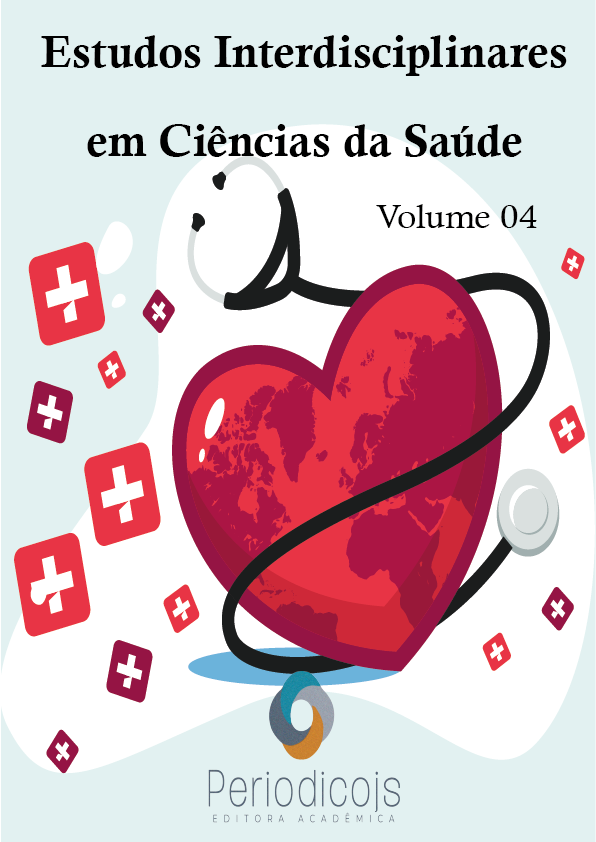Abstract
Cardiopulmonary arrest (CPA) is a dramatic situation, responsible for high morbidity and mortality, even in situations of ideal care. At the hospital level, it can be predicted from occurrences in less equipped places, such as outpatient clinics, to those that arise in other, very well equipped, such as intensive care units and coronary care units. The patient suffering from CPA is subject to numerous traumas after resuscitation, therefore, several care measures must be carried out by the multidisciplinary team in any and all health sectors. Objectives: To identify in the literature, scientific evidence about post-CPA patient care. Methodology: This is a descriptive, exploratory, integrative literature review, carried out in the SCIELO, LILACS and MEDLINE databases. The keywords indexed in (DeCS) were used: Cardiorespiratory Arrest, Cardiopulmonary Resuscitation, Health Care and Assistance, through the boolean operator AND. The following inclusion criteria were defined: studies available in full, free of charge, indexed in the aforementioned databases, published in the last 3 years. Exclusion criteria: theses, monographs and studies that did not respond to the objective of this research. This process resulted in the selection of 7 articles that were used to compose the sample of results. Results and Discussion: From the analysis of the literature, it was evidenced that the main care provided to the patient after cardiorespiratory arrest is the stabilization of vital signs, with determination of the level of consciousness/oxygenation capacity and blood pressure, reducing the risk of sequelae , keep the defibrillator ready and close to the bed, and monitor the patient. Final considerations: Based on the above, it is evident that every health professional must know the techniques for performing CPR, as well as the pre-care for the patient after resuscitation.
References
ANDRADE, Állef Diego Bonfim et al. Atuação fisioterapêutica no suporte avançado de vida durante a parada cardiorrespiratória (PCR) na UTI. Revista Eletrônica Acervo Saúde, n. 33, p. e762-e762, 2019.
CANUTO, Ilana Frota Pontes et al. Conhecimentos de médicos docentes acerca do diagnóstico e conduta de uma parada cardiorrespiratória (PCR). Brazilian Journal of Development, v. 8, n. 3, p. 18979-18995, 2022.
COSTA, Leandro Menezes Alves da; MINUZZO, Luiz. Parada cardiorrespiratória: suporte avançado de vida em adultos. In: Tratado Dante Pazzanese de emergências cardiovasculares. 2016. p. 163-175.
BERNOCHE, Claúdia et al. Terapia do controle da temperatura pós-parada cardiorrespiratória. Rev. Soc. Cardiol. Estado de Säo Paulo, p. 27-33, 2016.
MAURICIO, Evelyn Carla Borsari et al. Resultados da implementação dos cuidados integrados pós-parada cardiorrespiratória em um hospital universitário. Revista Latino-Americana de Enfermagem, v. 26, 2018.
MOURA, Maria Clara Rodrigues et al. ATENDIMENTO INICIAL DA PARADA CARDIORRESPIRATÓRIA E CUIDADOS PÓS-PARADA. In: Anais do Congresso Regional de Emergências Médicas (CREMED-CO). 2020.
REZENDE, Elessandra Antônia Santos de et al. Proposta de protocolo assistencial para fluxo de atendimento ao paciente em parada cardiorrespiratória para o Centro de Saúde de Córrego Danta, MG. 2017.
SOUZA GIMENES, Andressa Rodrigues; COUTINHO, Camila Silva; RIBEIRO, Tiago Pacheco Brandão. ESTATÍSTICAS DE SOBREVIDA EM PACIENTES PÓS-PARADA CARDIORRESPIRATÓRIA. Revista Ibero-Americana de Humanidades, Ciências e Educação, v. 7, n. 10, p. 3306-3319, 2021.
SANTOS CALLOU, Diego Ravelly et al. Importância da organização da equipe multidisciplinar na parada cardiorrespiratória no setor urgência e emergência. Brazilian Journal of Health Review, v. 2, n. 6, p. 6207-6225, 2019.
SILVA, Mariana Pereira Barbosa et al. A equipe multiprofissional frente ao paciente vítima de parada cardiorrespiratória. Research, Society and Development, v. 9, n. 11, p. e3119119761-e3119119761, 2020.

